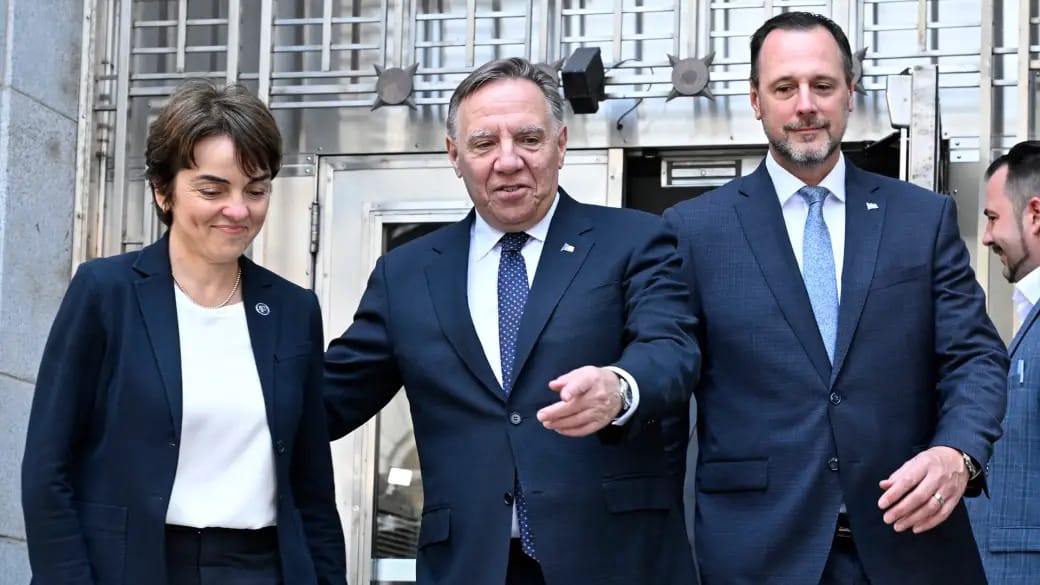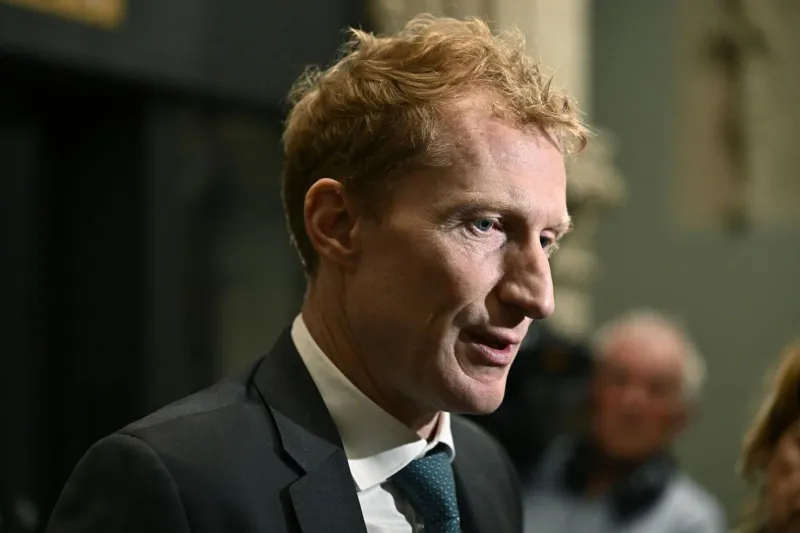Following a prominent minister's departure, the Legault cabinet convenes for the autumn session
At a recent caucus retreat in Rimouski, Legault dismissed concerns about his leadership, stating, “I have enough experience to know that in just about every government there are departures for all kinds of reasons.”

As Quebec's fall legislative session begins this week, Premier François Legault faces scrutiny over claims that his government might be nearing its end, even as he pushes forward with a critical energy bill.
Legault’s Coalition Avenir Québec (CAQ) government has struggled in the polls since last fall, marred by controversies and mistakes.
Last week’s resignation of high-profile minister Pierre Fitzgibbon, who cited a waning enthusiasm for the role, marked the third departure from Legault’s caucus in just over a year.
This has led opposition leaders to suggest that the government, two years into its second majority term, may be losing momentum.
At a recent caucus retreat in Rimouski, Legault dismissed concerns about his leadership, stating, “I have enough experience to know that in just about every government there are departures for all kinds of reasons.”
Fitzgibbon, who was responsible for significant portfolios including energy, had introduced a major energy bill before the legislature adjourned for the summer.
This bill proposes sweeping reforms to Hydro-Québec’s operations and electricity rate structures, aiming to double the utility’s capacity to support the province’s goal of carbon neutrality by 2050.
Political analyst and former Liberal minister David Heurtel emphasized that the fall session will likely revolve around this energy bill, which he described as a transformation of Hydro-Québec’s mission and Quebec’s energy outlook for years to come.
Fitzgibbon had previously indicated that electricity rates in the province could see “significant increases” over the next five to ten years.
However, Legault has pledged that residential rates will not rise more than three percent per year during his tenure, while acknowledging that commercial rates might increase.
Christine Fréchette, the newly appointed Minister of Economy and Energy, will now lead the bill through the legislature. Hearings are set to begin this week.
Opposition Liberal member Marwah Rizqy has criticized the move, suggesting that the bill should be withdrawn rather than proceeding under a newly appointed minister.
In addition to the energy bill, Legault has highlighted immigration and health care as key focuses for the fall. He has been calling on the federal government to reduce the number of non-permanent residents in Quebec, which has surged to nearly 600,000 from 300,000 in 2022.
Legault argues that temporary immigrants are exacerbating the province’s housing crisis and placing additional strain on health care and education services. He plans to introduce legislation this fall to limit the influx of international students to Quebec.
Critics, including Heurtel, argue that Legault might be using immigration issues as a distraction from his declining poll numbers.
The CAQ government is also under pressure to negotiate a deal with the union representing most of Quebec’s nurses, who are currently working without a collective agreement after 500 days.
The union has called for members to refuse overtime starting September 19.
Meanwhile, both the Liberals and the Parti Québécois (PQ) have seized on Fitzgibbon’s departure to make political gains. PQ Leader Paul St-Pierre Plamondon embarked on a campaign-style bus tour to Fitzgibbon’s riding of Terrebonne, where Legault will need to call a byelection within the next six months.
As Quebec’s fall legislative session begins, the political landscape is shifting, with multiple parties jockeying for position amid a backdrop of controversy and uncertainty.
Parti Québécois (PQ): The PQ, which previously lost the riding of Terrebonne to Pierre Fitzgibbon in 2018, is now eyeing a potential comeback.
With Fitzgibbon's departure, PQ Leader Paul St-Pierre Plamondon is urging Premier François Legault to call the byelection sooner rather than later.
The PQ has been leading in the polls despite having only four elected members, but maintaining this momentum until the next election in October 2026 will be challenging, according to political analyst Antonine Yaccarini.
Quebec Liberal Party: The Liberals are also facing internal challenges. The party is currently trailing the CAQ and the PQ in the polls and struggling with a lack of support from young people and francophone voters.
A leadership contest, set to be decided next June, could revitalize the party.
Federal Transport Minister Pablo Rodriguez is expected to enter the race, alongside former Montreal mayor Denis Coderre and Charles Milliard, former president of the Quebec federation of chambers of commerce.
A dynamic leadership race could potentially shift the political landscape, making the Liberals a stronger contender.
Québec Solidaire: This left-leaning party is navigating its own internal turmoil following the resignation of one of its spokespeople in April.
Gabriel Nadeau-Dubois, the remaining spokesperson, is pushing for modernization and a more pragmatic approach.
The party will select its next female spokesperson in November, aiming to strengthen its position and future prospects.
Legislature Logistics: As members return to the legislature, they will find the main chamber, Salon bleu, closed for renovations.
The sessions will be held in the Salon rouge, adding a practical challenge to the ongoing political maneuvering.
Overall, with a contentious energy bill on the table, shifting party dynamics, and internal challenges across the political spectrum, Quebec's fall session promises to be a pivotal period for the province’s political future.





